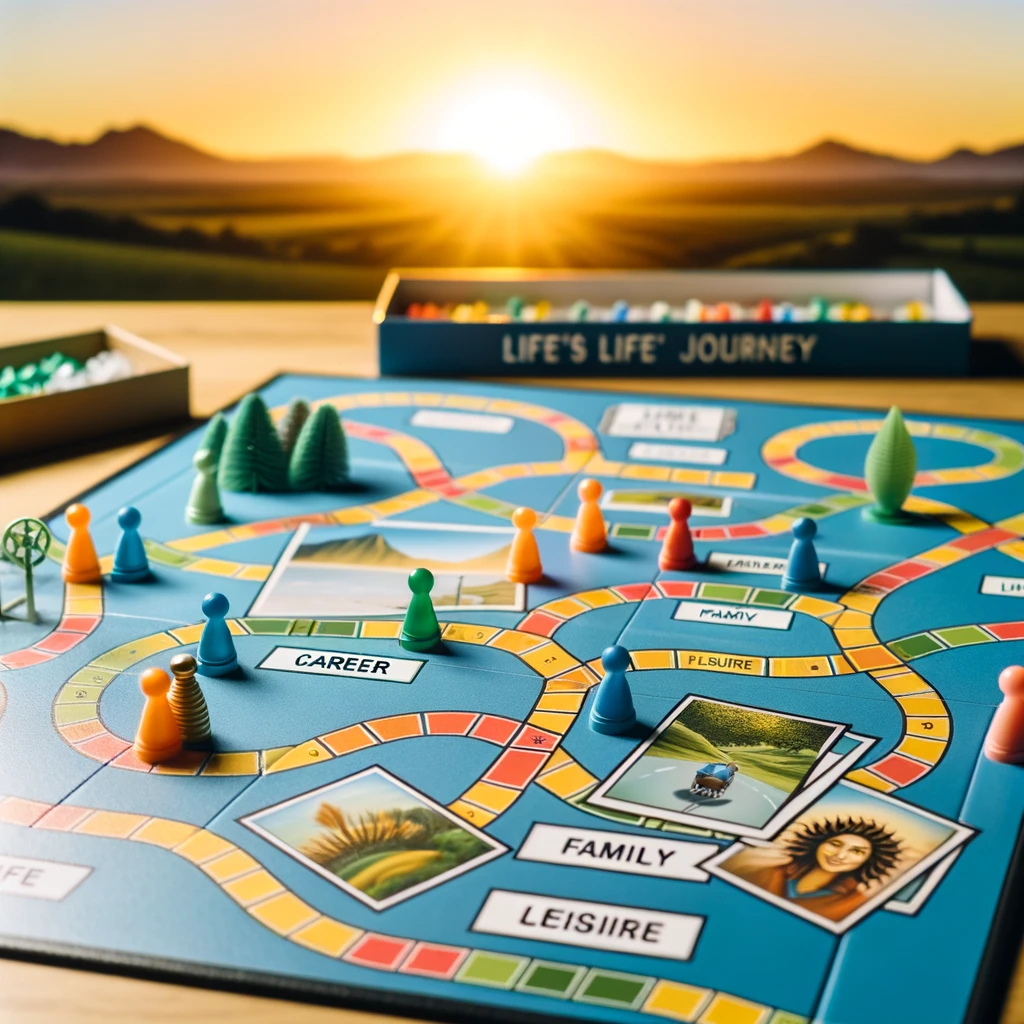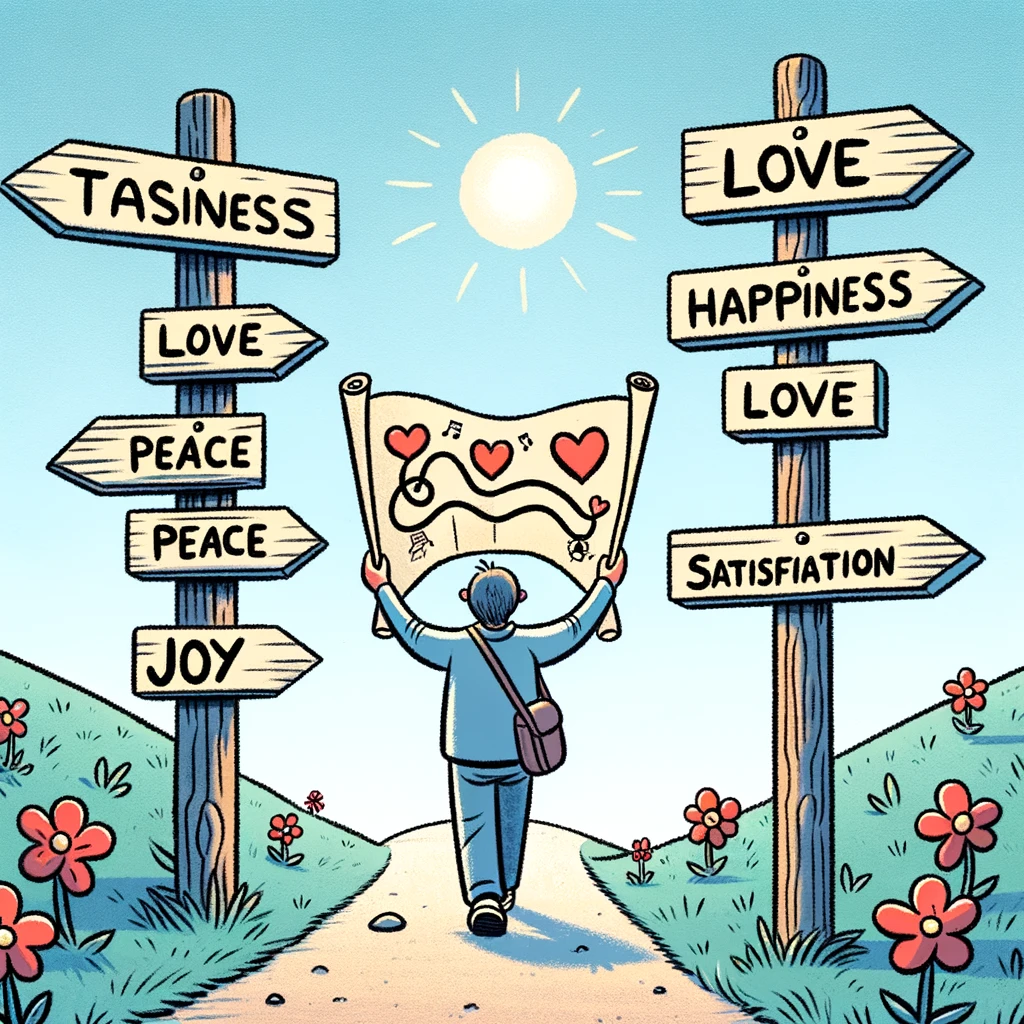In my previous posts, I discussed the concept of the metagame - the game about the game. And how my blog post itself is part of this metagame. But then, what is the game? This is a great question. What is your game? Have you realized that you’re participating in a game whose rules were never explained to you? In fact, very few even guess its essence. And among them, I too do not understand most of it.
If you think in terms of definitions, perhaps what I’m about to discuss might not be for you. It requires a more abstract way of thinking. But don’t worry, you don’t have to be a programmer or a mathematician to understand it. In the classical sense, the metagame evolves around actual games. For example, D&D forums and communities are formed worldwide, where participants exchange their experiences. Figures emerge that are exchanged among the participants. Meetings are organized. And where there is demand, supply appears. But how will the service prevail? It either participates in the game or invents its own.

I’ve often said that the game with the best graphics is life itself. It’s just too complex to publish its rules in a book. And some might consider it cheating because a few would realize they are in a losing position. But in this game, there are no winners or losers. Everyone has their own game. It’s up to us to feel good in the end or regret our participation.
If you haven’t read it yet, I recommend Solve for Happy (Amazon), by Mo Gawdat. The book won’t necessarily make you happier, but it will provide insights that make it easier to choose to be happy.
Reinterpreting Goals
Every game has some goal. Some motivation that helps make the process enjoyable. Some motivational books ask you to visualize your desires and dreams: a new sports car in the garage, a holiday home by the sea, a million-dollar salary, etc. For a long time, I lived trapped by these unattainably distant goals. There are two problems with this way of thinking.
First, these goals are in the future. They suggest that we will be successful and happy in the future. If we persist and suffer now, maybe we’ll be happy and successful in the future. They make you plan steps on how to get there. Milestones are set, with the prize at the end. However, if we fail to follow the plan, we become disappointed. For example:
- Failing to get into the company we applied for.
- Not managing to save enough money.
- Being laid off from our job.
- Failing to acquire a new client.
- This quarter not progressing as the numbers should have.
And the list goes on. But what happens if we do achieve these goals? We set a new goal, and the whole cycle starts over. It’s a gamble where the chance of losing is higher than winning. Sooner or later, we will fail. And if we lose, it will definitely have a negative impact on our mental state and health.

The second problem is that they always try to project material goods in front of us. For example, more salary. A new car, a new apartment. New gadgets. By nature, humans are prone to accumulation. In the past, this was literally a matter of life and death. If we didn’t have a small storehouse to keep food for later, we starved in winter. If we didn’t have enough quality clothes, we froze to death. If we didn’t have a safe place, we were attacked and possibly killed. But do we really need these things today? Let’s see:
- New car: Have you asked yourself if you need to own a car? Or do you just want to get from one place to another? Do you really need to be physically at that place, or is someone else imposing their will?
- New apartment: What’s wrong with the old one? Does it no longer provide adequate security? Have our friends and loved ones moved away? Or is a new family member arriving, and there’s no room for them? Or maybe we just want to boost our ego with a new property. Maybe there’s no room for us because we’ve accumulated so much stuff we don’t know where to put it. Or perhaps we want to change places because of a “new opportunity”. But is it really an opportunity or someone else’s requirement?
- Gadgets: Do we really buy the 20th T-shirt because we have nothing to wear? Do we really buy the new iPhone to keep in touch with our friends? Do we really buy new furniture because they serve us better? Or are we victims of a sophisticated tactic aimed at making us long for things that do not promote our happiness?
What is my Game?
My perspective is somewhat similar. I, too, have a dream, a goal for which I strive daily. They are my family and loved ones. Not so long ago, I started rucking. Of course, there are health reasons for this. Being an IT professional, I spend ten hours a day sitting or lying in front of screens. So, I needed something to get me out of my comfort zone. I enjoy walking, but it was never a requirement for me. Now, however, I go for a walk every day instead of breakfast, and I stick to it even when the wind blows… or when I visit my parents.

Currently, I walk with 13 kilograms (about 30 pounds). However, I was surprised that I didn’t receive adverse reactions from my relatives, but my father also joined these walks, though without the weight. :) During these walks, we spend hours exploring the local landscapes. My father is a keen fisherman, so I know where I got my love for the waterfront. My father is retired now, so he has plenty of free time, but he doesn’t spend it idly. There’s always something to do in agriculture as long as we have the energy. On these walks, we talk for hours. About daily events, plans, and what the world was like in the past. I wasn’t as attentive to the elderly before; maybe I was too young, but I have received an incredible amount of inspiration and experience from them over the years.
This experience is invaluable - the sunshine on my face, the fresh air we can never feel in a crowded city, the chirping of birds, and the occasional sight of animals. I want to experience this more often and help others to do the same. I am grateful to the author of Scarcity Brain (Amazon), Michael Easter, not only because I received from him this community activity, rucking, through which I can live this experience but also because his book made it clear that achieving this does not require much effort. However, the casino tactics we are victims of make it impossible to escape the rat race.
So, my game is simple. I try to find and create activities that allow me to spend more time with my loved ones.
What do you think?
What is your ‘game’ that you play day by day? How can you define the concepts of success and happiness in your own life without tying them to material possessions? What steps can you take today to step off the ‘hamster wheel’ and find real meaning in your life?